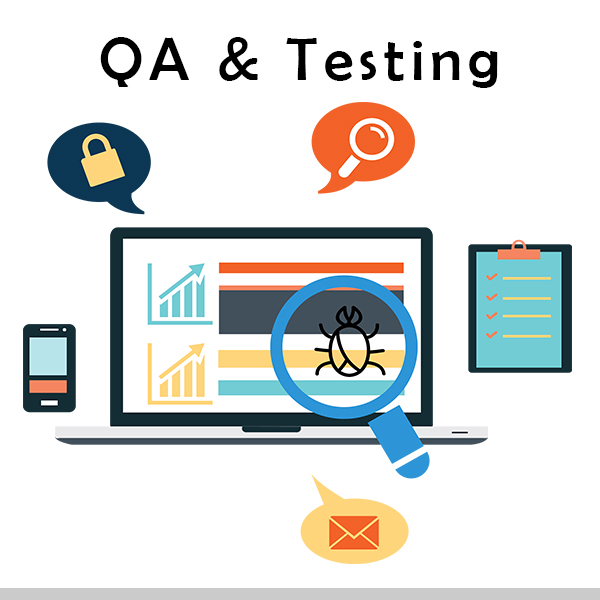Here Is What You Need To Know About Managed QA Services And Its Benefits
Before we hop onto why acclimating the best managed QA services for your enterprise is important and why stressing more on it is never enough, let’s start with something astonishing.
In 1962 when on a fly-by Venus mission, the Mariner 1 spacecraft had barely made it out of the atmosphere and alarmingly veered out of the defined course. A software-coding error had caused the rocket to deviate off the course and threatened to crash back on earth. NASA engineers on the ground immediately issued a self-destruct command. Later on, it was found out that an omission of a simple hyphen in coded computer instructions allowed the transmission of incorrect guidance signals to the spacecraft. The cost– $18 million at the time.
These incidents are living examples of why software testing is vital. Testing is mainly context-based and risk-driven. A methodical and disciplined approach is required to find the necessary bugs or errors.
The dynamics of QA and Testing are changing rapidly. Spread across the globe, organizations imbibe an approach best suitable to their requirements for internal testing and analysis. Today, the economy has transformed into a digital world.
Organizations and large companies today provide agile managed QA services for various enterprises which helps their clients achieve maximum productivity and accuracy. QA services are performed so as to avoid any discrepancies that may arise during the deployment or run-time.
We will look at some of the major trends that affect the dynamics of software testing and quality analysis. This will lead us to the answer for how does managed QA services work and what are its benefits.
The Future and Benefits of Managed QA Services
Those involved in modern QA and test functions have to evolve constantly with the increase in demand for state-of-the-art and sophisticated software. As a wise man once said,
‘With great power comes great responsibility’.
The greater, more complicated the software is, the more arduous and intricate the testing services need to be.
Those involved in providing enterprise technology services to large companies will have to focus on:
- Smart Test Platforms
- Agile organization of the QA and test function
- Intelligent test automation and smart analytics
Smart Test Platforms
Smart test platforms are the byproduct of entirely self-aware and self-adaptive environments. The test environments and test data are one of the most notable challenges for the core enterprise-based applications.
Examples of these applications are the ones supporting ERP, HR, and Finance. It also includes more fluid applications, including IT applications developed in short cycles which are quite often deployed on smartphones, tablets, or even web browser.
The first step towards smart test platforms can be seen by the shift towards cloud-based environments away from permanent environments. Large enterprises increasingly demand the techniques that include service virtualization in order to help test integrations at the time of application development.
Agile Organization of QA and Test Function
In the agile and DevOps models of future, the testing models are moving from central teams into the decentralized units. Test organizations have now started combining flexibility and agility along with reuse and efficiency.
The companies providing these enterprise technology services will adopt the decentralized model within the IT teams of various lines of business supported by a Test Excellence Center providing test data, test expertise, and skills.
Intelligent Test Automation and Smart Analytics
Rather than simply automating the existing test processes, leading top organizations take the opportunity to automate futuristic areas like API validation and service integration.
Organizations of the future will be driven by the demand for speed. Test automation and smart analytics will take a new form. Smart data discovery will be the new norm in the market. Companies will automatically be able to find answers hidden deep in their data pile with smart, automated testing softwares. As an example of smart analytics, companies that provide managed QA services have developed a method called ‘Recommendation Engine’.
This algorithm automatically predicts the person’s interest based on empirical observations of similar people’s interests. This can help companies drive more user engagement and more purchases.
Key Recommendations For Quality Testing
Here are 5 key recommendations based on several findings for quality testing and automation.
- Enterprises need to invest in smart test and QA platforms
- Increase the level of smart test automation
- Enterprises need to define a test platform strategy on a larger scale
- The QA and Test functions need to be transformed to support agile development and DevOps teams.
- Designate QA analytics strategy on enterprise level
Conclusion
Testing is no different than development. They are like the two rear wheels of a car. While the engine accelerates the front wheels, without the rear wheels, the car cannot move forward. Testing is the backbone to your final product. In the area of enterprise technology services it is said, ‘Test first, Trust later.’





